Mattresses
Sleep Deprivation Statistics
In the busy world today, sleep seems to be a luxury. Many pride themselves that they only get less than 7 hours of sleep every day because they are so busy. It is as if sleep itself is a hindrance to progress. Yet, the truth could not be any further. Although the science is still under development, one thing is certain: To humans, sleep is an essential biological process. Some people need 7 to 9 hours of sleep, while some feel refreshed if they get at least 6 hours. Regardless of the sleep needs, despite the established importance of sleep, statistics on sleep deprivation show that many still do not get enough of it. Both acute and chronic sleep deprivation can have severe health consequences, such as hypertension and cardiovascular diseases, and performance consequences, such as making mistakes at work.
Please link to us if you find any information useful on this page. It helps us out . Thank you.
The Most Surprising Facts and Statistics on Sleep Deprivation
- Organizations lose $31 billion each year because of sleep-related errors.
- Adults who sleep less than 7 hours per night are more likely to report 10 chronic health conditions.
- Adults who sleep less than 7 hours per night are more likely to obese, physically inactive, and smoke.
- Japan is the number 1 sleep-deprived country, while New Zealand is the number 1 rested country.
- Around 85% of teens get less than 8 hours of sleep every day.
In the US:
- more than 2/3 of high school students get less than 8 hours of sleep on school nights.
- 100,000 die in hospitals due to medical errors and sleep deprivation.
- 2 million working days are lost per year due to sleep deprivation.
- About 16% of fatal crashes involver driver drowsiness.
(AllOneHealth), (CDC), (American Sleep Association), (World Economic Forum), (Brian Tefft), (ChildrenMD)
General Facts and Statistics on Sleep Deprivation
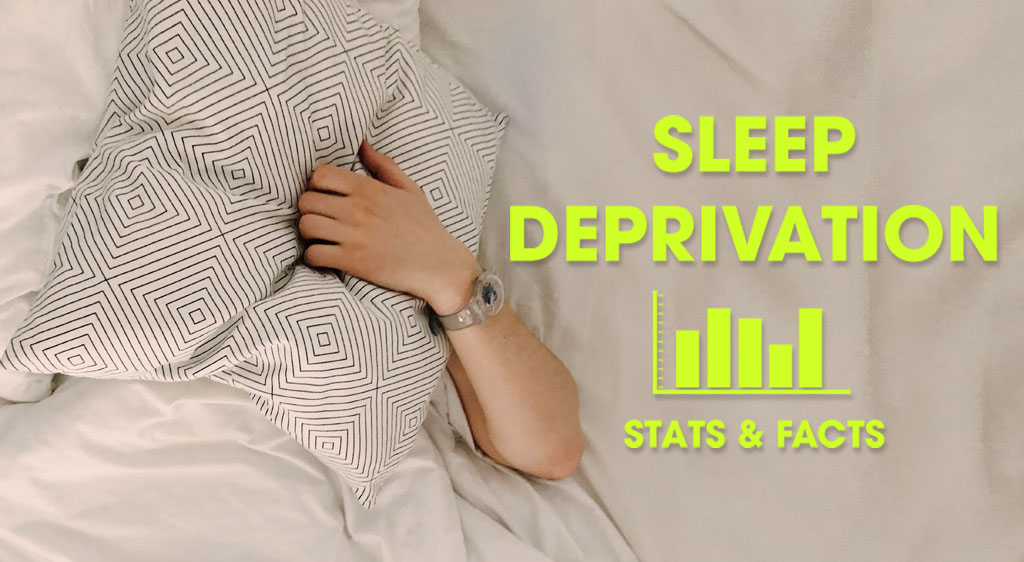
1. About 35.2% of US adults have short sleep duration, i.e., get less than 7 hours of sleep.
Short sleep duration varies among age groups. Statistics show that the prevalences are as follows:
| Age Group (Years) | Prevalence of Short Sleep Duration (%) |
|---|---|
| 18 to 24 | 32.2 |
| 25 to 34 | 37.9 |
| 35 to 44 | 38.3 |
| 45 to 54 | 39.0 |
| 55 to 64 | 35.6 |
| 65 and older | 26.3 |
(CDC)
2. Getting less than 7 hours of sleep also varies among ethnicity.
| Ethnicity | Prevalence of Short Sleep Duration (%) |
|---|---|
| White | 33.4 |
| Hispanic | 34.5 |
| Asian | 37.5 |
| American Indian/Alaska Native | 40.4 |
| Native Hawaiian/Pacific Islander | 46.3 |
| Other/Multiracial | 44.3 |
(CDC)
3. Those who get less than 7 hours of sleep have higher chances of also having health risk factors compared to those who get at least 7 hours.
| Health Risk | Prevalence of Short Sleep Duration (%), Prevalence in those who get at least 7 hours of sleep (%) |
|---|---|
| Obesity; 33.0; 26.5 | |
| Physical inactivity; 27.2; 20.9 | |
| Excessive alcohol consumption; 19.4;19.1 |
(CDC)
4. Those who get less than 7 hours of sleep have higher chances of also having chronic diseases.
| Chronic Disease | Prevalence of Short Sleep Duration (%), Prevalence in those who get at least 7 hours of sleep (%) |
|---|---|
| Heart Attack; 4.8; 3.4 | |
| Coronary Heart Disease; 4.7; 3.4 | |
| Asthma; 16.5;11.8 | |
| COPD (Chronic Obstructive Pulmonary Disease); 8.6;4.7 | |
| Cancer; 10.2;9.8 | |
| Arthritis; 28.8;20.5 | |
| Depression; 22.9;14.6 | |
| Chronic Kidney Disease; 3.3;2.2 | |
| Diabetes;11.1;8.6 |
(CDC)
5. Among high school students, 12th graders are the most likely to get less than 8 hours of sleep.
Meanwhile, 9th graders are the least likely. Short sleep duration also varies with ethnicity among high school students. American Indian/Alaska Natives have the lowest prevalence while Asians have the highest.
(CDC)
Symptoms of Sleep Deprivation
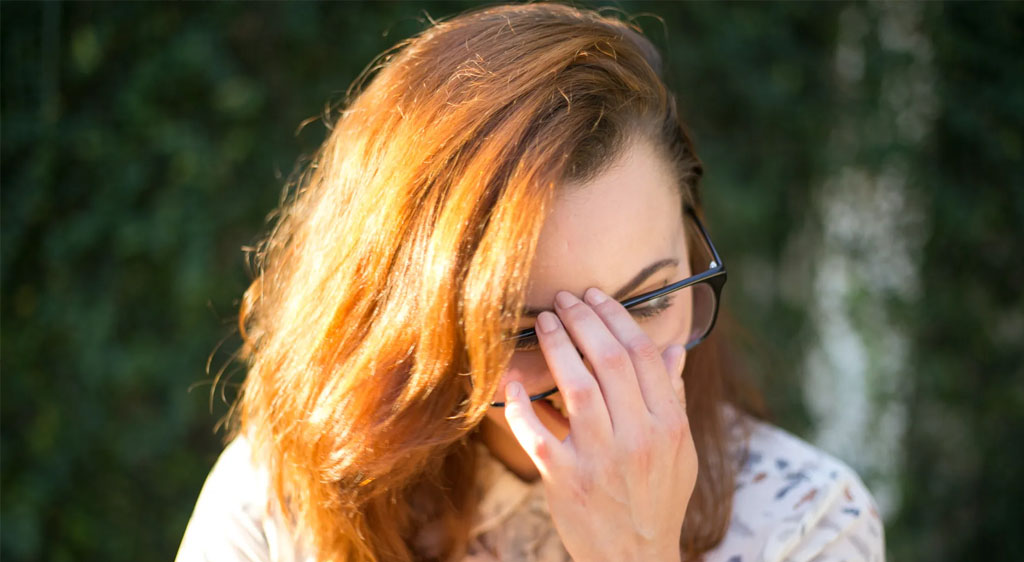
6. It should take you 10 to 20 minutes to fall asleep at bedtime.
Statistics on sleep deprivation indicate that if you fall asleep faster, then you may be sleep-deprived.
(Healthline)
7. Other signs or symptoms of chronic sleep deprivation are:
- Yawning
- Moodiness
- Fatigue
- Irritability
- Depressed mood
- Difficulty learning new concepts
- Forgetfulness
- Inability to concentrate or a “fuzzy” head
- Lack of motivation
- Clumsiness
- Increased appetite and carbohydrate cravings
- Reduced sex drive
(Medical News Today)
8. People who are sleep-deprived for at least 24 hours experience visual distortions, illusions, and hallucinations. Visual hallucinations are also the most common symptom of prolonged sleep deprivation.
Some of the things that subjects report include:
- The room appearing larger
- Stationary objects moving
- Changes in color and shape
- Objects turning into something else (e.g., a switch transforming to a doll)
(Flavie Waters, MD)
9. After the visual hallucinations, somatosensory hallucinations are the 2nd most common symptom of prolonged sleep-deprivation. These hallucinations involve sensations like pressure, pain, and temperature, tend to happen next.
Some examples include:
- Body distortions
- Feelings of moving faster
- Feelings of being touched
- Feeling hot or cold
(Flavie Water, MD)
10. Auditory or sound hallucinations are the 3rd most common symptom of prolonged sleep deprivation.
Some examples include:
- Misjudging the location of sounds
- Hearing changes in voice quality
- Hearing non-existent voices or sounds, like dogs barking
(Flavie Water, MD)
Sleep Deprivation Trends
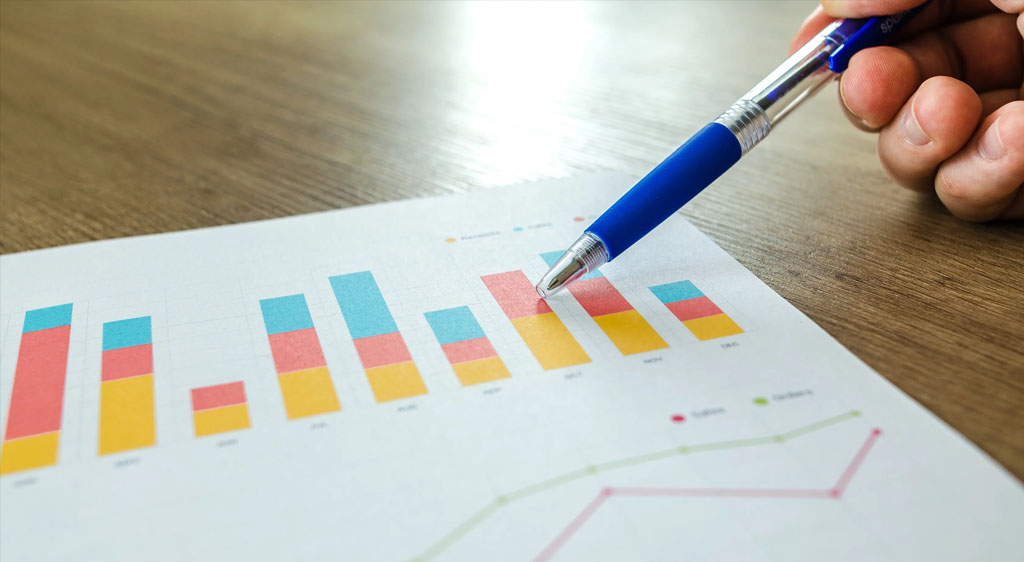
11. In 1942, US citizens would get an average of 7.9 hours of sleep every night.
In 2013, this duration went down to 6.8 hours. By 2018, it further decreased to 6.3 hours per night. In 2019, US citizens would get an average of 5.5 hours of sleep. every night.
(Kusi News), (StudyFinds)
12. About 54% of people in Hawaii are sleep-deprived.
This makes Hawaii the most sleep-deprived US state. On the other hand, only about 38% of people in South Dakota are sleep-deprived, making it the most rested US state.
(CDC)
13. The Ministry of Health, Labor, and Welfare of Japan found that around 50% of Japanese in their 40s get less than 6 hours of sleep per night.
The average work life in Japan is notorious for its long working hours and commuting times that take away time from sleep.
(Nippon Communications Foundation)
14. About 11.3% of Japanese men in their 40s say they get less than 5 hours of sleep per night, while 37.2% say they get between 5 and 6 hours of sleep.
In comparison, around 10.6% of Japanese women in their 40s say they get less than 5 hours of sleep per night, while 41.8% say they get between 5 and 6 hours of sleep.
(Nippon Communications Foundation)
15. The average New Zealander sleeps at least 7.5 hours per night.
However, statistics on sleep deprivation still show that more than 1/3 of New Zealanders are sleep-deprived.
(World Economic Forum), (Scoop)
16. Researchers found that Maori are 34% more likely to be sleep-deprived.
It seems ethnicity also plays a role in sleep deprivation in New Zealand, but only up to a point. When researchers took into account socio-economic factors, the contribution of ethnicity to sleep deprivation became insignificant. Those living in deprived neighborhoods were also deprived of sleep.
(Dr. Sarah-Jane Paine), (Dr. Philippa H Gander)
17. A survey found that 80% of New Zealanders would prefer to have a full night’s sleep than a big night out.
Unfortunately, this preference is a result of fatigue and overwork, especially for those under 30 years of age.
(Southern Cross)
Causes of Sleep Deprivation
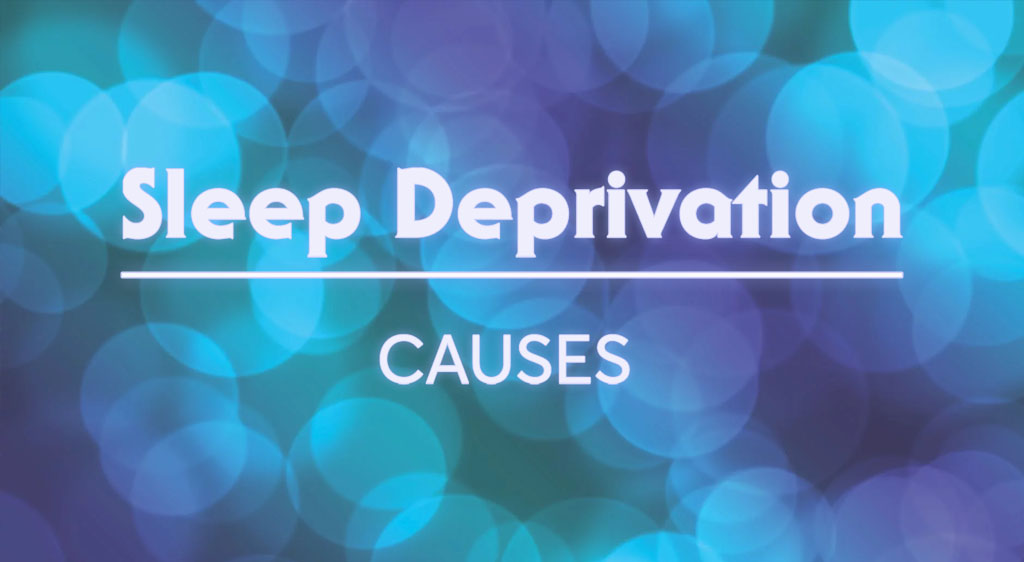
18. Statistics on sleep deprivation show that sleep disorders are the number 1 cause of sleep deprivation.
These disorders include insomnia, sleep apnea, narcolepsy, and restless legs syndrome. The numbers 2 and 3 causes of sleep deprivation are old age and illnesses. Other factors include stress and changes in schedule.
(Columbia University)
19. Out of all the sleep disorders, insomnia is the number 1 cause of sleep deprivation.
Various statistics on sleep deprivation show that insomnia is present between 10 and 30% of the general population.
(Dr. Swapna Bhaskar)
20. One of the reasons sleep deprivation is common among people older than 65 years is their medications or other health conditions that are prevalent in the elderly.
For example, cardiovascular medications like anti-arrhythmics (for heart rhythm problems) and beta blockers (for high blood pressure) can disrupt sleep.
(Columbia University), (National Sleep Foundation)
21. Sleep deprivation is common among many illnesses since insomnia is a common symptom for these conditions.
These illnesses can also have symptoms that disrupt sleep. These illnesses include depression, schizophrenia, chronic pain syndrome, cancer, heart disease, stroke, Parkinson disease, and Alzheimer’s disease.
(Columbia University)
22. Most physicians get an average of less than 6.5 hours of sleep per night.
Unsurprisingly, profession is also a leading cause of sleep deprivation. The field of healthcare is notorious for keeping its workers up. However, statistics on sleep deprivation show that many other professions can match the sleep deprivation in healthcare. Some of the leading sleep-deprived professions include protective services such as firefighting and law enforcement, food preparation, and production.
(Science Daily), (The Stacker)
23. New parents get around 5 to 6 hours sleep every night.
Having a newborn is another cause of sleep deprivation. Newborns and infants can require the attention of their parents in the middle of the night. This situation is especially true when babies experience sleep regression.
(Healthline)
24. Nearly 35% of airline pilots have sleep complaints.
Traveling and shifting time zones are more leading causes of sleep deprivation. Pilots of the travel industry are among those who take the brunt of the consequences. Statistics on sleep deprivation also reveal that nearly 60% of pilots experience daytime sleepiness while more than 90% experience fatigue.
(Dr. Catia Reis)
25. Another study found that 90% of flight attendants have trouble sleeping.
Flight attendants are not safe from sleep deprivation. Many report getting less than 7 hours of sleep.26 Sleep deprivation is so common among flight attendants that the US Federal Aviation Administration has dubbed it “Flight Attendant Fatigue”.
(Huffington Post), (US FAA)
Risks of Sleep Deprivation
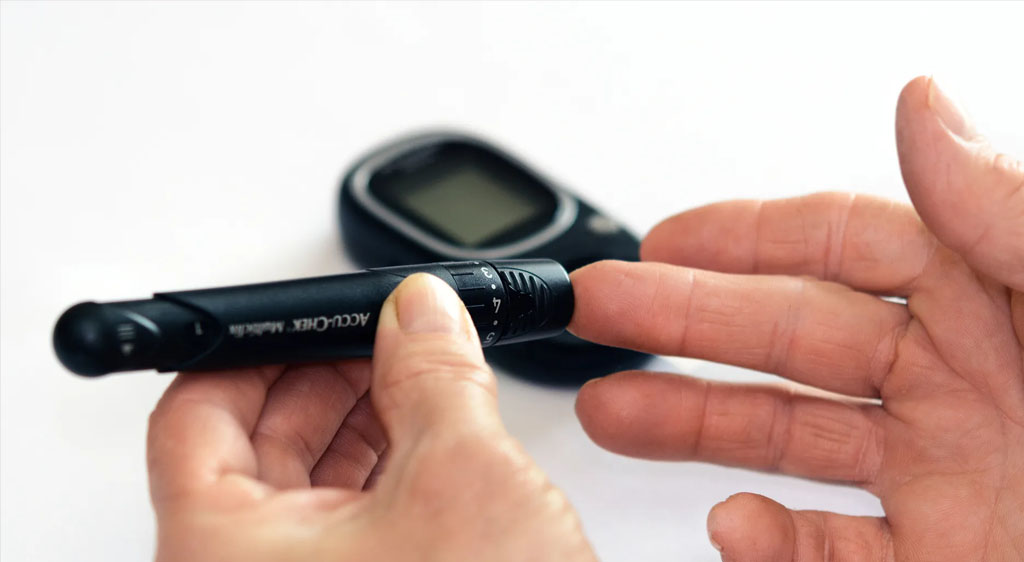
26. Three large epidemiological studies show that getting 5 hours or less of sleep per night increases your mortality risk from all causes by 15%.
However, do not let this make you panic and start sleeping more than 9 hours per night. Studies also show that getting too much sleep is also unhealthy. Aim for that sweet-spot of 7 to 9 hours.
(Harvard Medical School), (Johns HOpkins Medicine)
27. Around 1 in 25 adults same they have fallen asleep while driving in the last 30 days.
Some reports show that drowsy driving is as dangerous, if not more, as drunk driving. For example, a drunk driver can still speed up, slow down, and react on the road. A drowsy driver can fall asleep while going fast and fail to brake or turn.
(CDC), (National Sleep Foundation)
28. In 2013, the US National Highway Traffic Safety Administration found that drowsy driving caused:
- 72,000 crashes
- 44,000 injuries
- 800 deaths
The actual numbers may be larger. Some studies find that up to 6,000 fatal crashes are due to drowsy drivers.
Sleep Deprivation in Different Professions
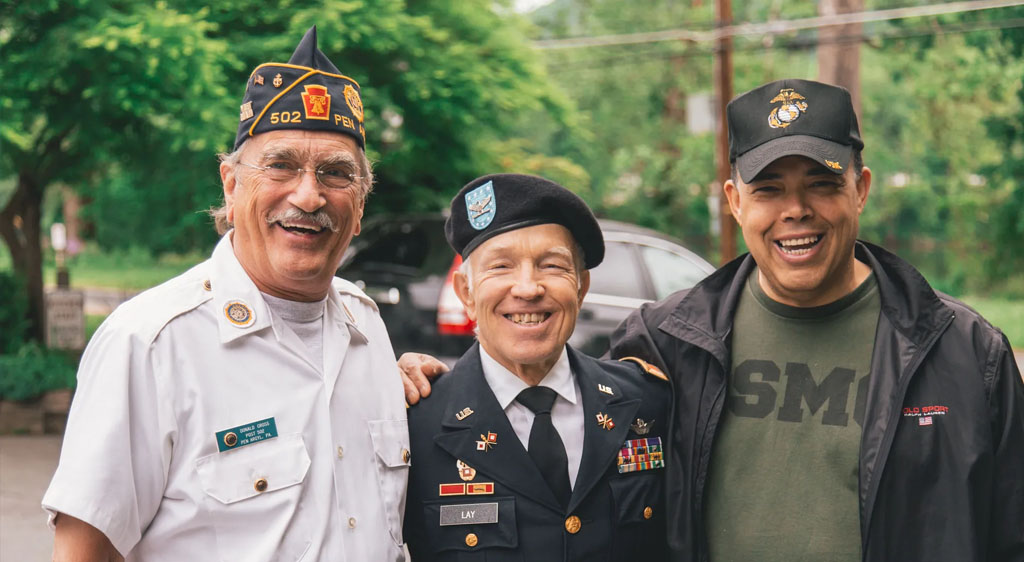
29. Around 40% of active duty US military members say they sleep for 5 or less hours per night.
The military is also notorious for its demanding hours. For example, around 39% of the US Navy and 42% of the US Marine Corp say they frequently do not get enough sleep to function well at work. Shifts can go for more than 24 hours. Nighttime disturbances are also common, especially when combatants are on high alert in the field.
(National Sleep Foundation)
30. Around 85% of active duty US military members have a sleep disorder.
The most common are sleep apnea and insomnia.
(National Sleep Foundation)
31. A study found that 40% of police officers in the US and Canada are sleep-deprived.
The study asked about 5,000 municipal and state police officers in the U.S. and Canada. Of the 40% many also had undiagnosed sleep disorders.
(Shantha M. W. Rajaratnam, PhD)
32. Of the officers with sleep disorders, 25% had a higher risk of expressing uncontrolled anger to a suspect or citizen.
Moreover, 35% had a higher chance of having a citizen complaint filed against them.
(Shantha M. W. Rajaratnam, PhD)
33. Sleep apnea is present is 1 in 3 officers.
This rate is 8 times higher than that of the general population.
(Shantha M. W. Rajaratnam, PhD)
34. Sleep-deprived officers have a 51% chance of falling asleep while driving on duty.
These officers also have a 43% higher chance of making a serious administrative error.
(Shantha M. W. Rajaratnam, PhD)
35. Similar to police officers, around 40% of firefighters are sleep-deprived.
These firefighters also suffer from sleep disorders. What is worse is that 80% are unaware they have these sleep disorders.
(Science Daily)
36. Researchers found that around 43% of school personnel sleep less than 6 hours per night.
For teachers, the researchers also found that the sleep deprivation is due to professional responsibilities outside of the classroom. These responsibilities include grading, preparing lessons, etc. These teachers would go to bed between 11 PM and 12 MN and get up between 5 and 5:30 AM.
(Denise H. Amschler and James F. McKenzie)
37. Nearly 25% of teachers say that sleepiness gets in the way of their daily activities.
These teachers scored 11 or greater on the Epworth Sleepiness Scale, which indicates excessive daytime sleepiness. Sleepy teachers have a higher risk of giving inadequate supervision and instruction.
(Denise H. Amschler and James F. McKenzie)
38. Different statistics on sleep deprivation show how staggering the prevalance is on different industries. These prevalences are shown in the table below.
| Industry | PPrevalence of Sleep Deprivation |
|---|---|
| Management of Companies and Enterprises | 40.5 |
| Transportation and Warehousing | 37.1 |
| Public Administration | 33.5 |
| Healthcare and Social Assistance | 31.2 |
| Administrative Support, Waste Management, and Remediation Services | 30.6 |
| Utilities | 30.6 |
| Accommodation and Food Service | 30.4 |
| Retail Trade | 30.1 |
| Arts, Entertainment, and Recreation | 29.9 |
| Wholesale Trade | 30.1 |
| Mining | 28.2 |
| Construction | 28.1 |
| Finance and Insurance | 28.0 |
| Professional, Scientific, and Technical Service | 27.4 |
| Real Estate, Rental, and Leasing | 27.2 |
| Other Services, Except Public Administration | 26.9 |
| Education Services | 26.7 |
| Agriculture, Forestry, Fishing, and Hunting | 23.1 |
(Sare E. Luckhaupt, MD)
Financial and Functional Cost of Sleep Deprivation
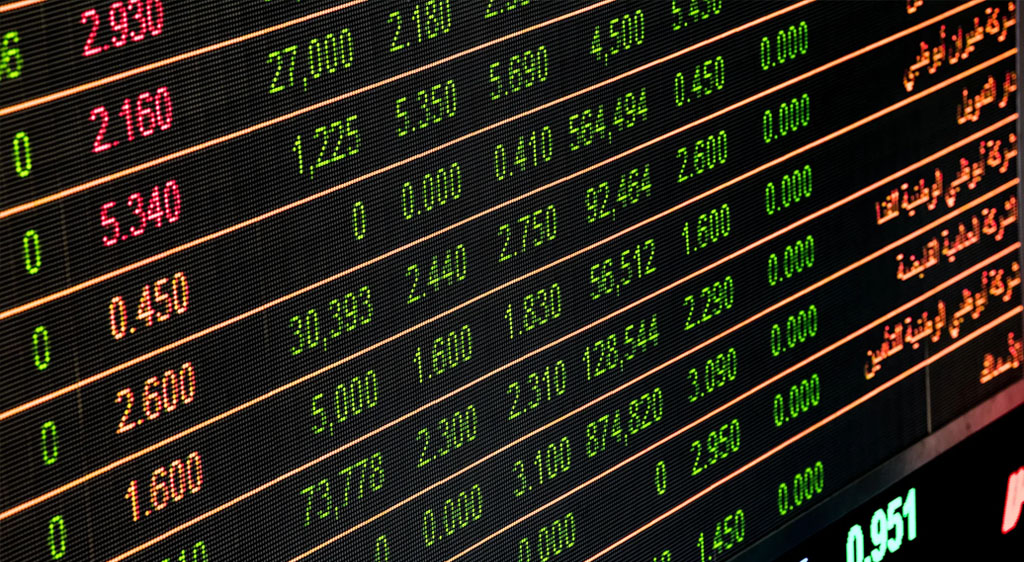
39. The US Economy loses more than $411 billion every year because of sleep deprivation.
These loses are due to tired or absent employees. Other economies that are severely affected by sleep deprivation are Japan, which loses $138 billion per year, and the UK, which loses $50 billion per year.
(Forbes)
40. Around 46% of sleep-deprived people miss work or make mistakes.
In contrast, only around 15% of those who get enough sleep tend to make mistakes. The higher chances of committing mistakes in sleep-deprived people is a consequence of the symptoms of sleep deprivation. Such symptoms that affect performance include loss of focus, irritability, mood swings, forgetfulness, etc.
(Prescouter)
Conclusion
Sleep deprivation is not something you should boast about. It is a sign of imbalances in life. Countless studies have consistently shown how sleep deprivation can negatively affect health and quality of life. Whatever may be the reason of your sleep deprivation, be it a sleep disorder or work, you should address it as soon as possible.
References
AllOneHealth:
CDC:
https://www.cdc.gov/sleep/data_statistics.html
American Sleep Association:
www.sleepassociation.org/about-sleep/sleep-statistics/
World Economic Forum:
Teft, 2018:
https://academic.oup.com/sleep/article/41/10/zsy144/5067408
ChildrensMD:
Healthline:
https://www.healthline.com/health/healthy-sleep/how-long-does-it-take-to-fall-asleep
Medical News Today:
https://www.medicalnewstoday.com/articles/307334#symptoms
Waters et al., 2018:
https://www.ncbi.nlm.nih.gov/pmc/articles/PMC6048360/
Kusi News:
https://www.kusi.com/studyfinds-that-americans-are-now-averaging-less-than-6-hours-of-sleep-per-night/
StudyFinds:
https://www.studyfinds.org/tired-nation-americans-now-averaging-less-than-6-hours-sleep-per-night/
CDC:
https://www.cdc.gov/media/releases/2016/p0215-enough-sleep.html
Nippon Communications Foundation:
Scoop:
Paine and Gander, 2016:
https://pubmed.ncbi.nlm.nih.gov/28923252/
Southern Cross:
https://www.southerncross.co.nz/group/media-releases/2015/shocking-sleep-stats
Columbia University:
https://www.columbianeurology.org/neurology/staywell/document.php?id=42069
Bhaskar et al., 2016:
.https://www.ncbi.nlm.nih.gov/pmc/articles/PMC5353813/
Columbia University:
https://www.columbianeurology.org/neurology/staywell/document.php?id=42069
National Sleep Foundation:
https://www.sleepfoundation.org/articles/how-medications-may-affect-sleep
Science Daily:
https://www.sciencedaily.com/releases/2008/03/080304075723.htm
The Stacker:
https://thestacker.com/stories/4313/these-are-most-sleep-deprived-professions?page=3
Healthline:
https://www.healthline.com/health/parenting/new-parent-sleep-study#This-too-shall-pass
Healthline:
https://www.healthline.com/health/baby/8-month-sleep-regression
Reis et al., 2016:
https://www.ncbi.nlm.nih.gov/pmc/articles/PMC5021958/
Huffington Post:
https://www.huffpost.com/entry/how-flight-attendants-deal-with-jet-lag_n_57195cbee4b0d0042da8c3c0
US FAA:
https://www.faa.gov/data_research/research/med_humanfacs/oamtechreports/2000s/media/200721.pdf
Harvard Medical School:
http://healthysleep.med.harvard.edu/healthy/matters/consequences/sleep-and-disease-risk
Johns Hopkins Medicine:
https://www.hopkinsmedicine.org/health/wellness-and-prevention/oversleeping-bad-for-your-health
CDC:
https://www.cdc.gov/features/dsdrowsydriving/index.html
National Sleep Foundation:
https://www.sleepfoundation.org/articles/drowsy-driving-vs-drunk-driving-how-similar-are-they
Rajaratnam et al., 2011:
https://jamanetwork.com/journals/jama/fullarticle/1104746
ScienceDaily:
https://www.sciencedaily.com/releases/2014/11/141113085220.htm
Amschler and McKenzie, 2009:
https://files.eric.ed.gov/fulltext/EJ886320.pdf
Luckhaupt, et al., 2010:
https://www.ncbi.nlm.nih.gov/pmc/articles/PMC2817902/
Forbes:
https://www.forbes.com/sites/niallmccarthy/2016/12/01/report-sleep-deprivation-costs-the-u-s-economy-400-billion-every-year-infographic/#7afcccb21998
Prescouter:
https://www.prescouter.com/2018/02/sleep-deprivation-affects-work-performance/
© 2025 Rest Right Mattress. All Rights Reserved.


